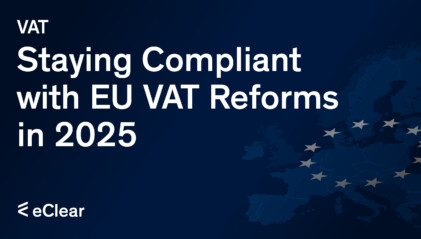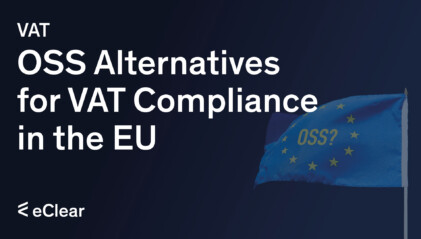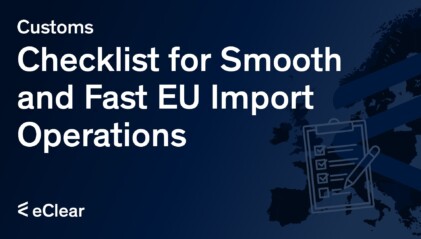Navigating the Belgian VAT system is crucial for online merchants operating in the country. Ensuring compliance with the Federal Public Service Finance regulations helps businesses maintain a competitive edge, avoid penalties, and provide a seamless shopping experience for customers. Stay informed about the latest VAT rules, rates, and exemptions to optimize your tax position and grow your online business in Belgium.
Belgium introduced Value Added Tax (VAT) in 1971, replacing its previous sales tax system. This change aligned Belgium’s policies with the broader goals of the European Union (EU). As a founding EU member, Belgium further harmonized its tax system in 1993 by adopting the EU-wide VAT model. This aimed to create a fairer, more efficient tax system to promote economic growth and strengthen the EU single market.

VAT Rates
Standard rate: 21%
The standard VAT rate of 21% applies to most goods and services in Belgium. This includes but is not limited to electronics, clothing, and various professional services.
Reduced rate: 12%
A reduced VAT rate is applied to specific goods and services such as social housing, restaurant services (excluding drinks), and certain agricultural supplies.
Reduced rate: 6%
Another reduced VAT rate is levied on essential goods and services, including basic food items, books, medicines, and cultural and social services. Additionally, this rate applies to the renovation and repair of private dwellings older than ten years, provided certain conditions are met.
Zero rate
The zero VAT rate applies to specific transactions, such as intra-community supplies and exports outside the EU. Although no VAT is charged on these transactions, businesses are entitled to deduct input VAT related to these supplies.
Official link
VAT Exemptions
In addition to the various VAT rates in Belgium, several goods and services are exempt from VAT, meaning no VAT is charged on the supply. The Belgian VAT system acknowledges these exemptions to ensure certain essential services and specific sectors receive appropriate fiscal treatment.
It is important to note that while these exemptions relieve suppliers from charging VAT on their goods or services, they may also restrict their ability to recover input VAT on related expenses. The VAT exemptions aim to reduce the financial burden on consumers while maintaining a balanced and efficient tax system.
Public Services
Public services such as healthcare and education are exempt from VAT. Healthcare services provided by licensed professionals, including doctors, dentists, and nurses, are not subject to VAT. Similarly, educational services offered by recognized institutions, such as schools and universities, are also VAT-exempt.
Financial and Insurance Services
Financial and insurance services are exempt from VAT. This includes services related to banking, investment, and insurance transactions and services provided by financial intermediaries.
Postal Services
Postal services provided by the public postal operator, bpost, are exempt from VAT. This exemption covers universal postal services but not express or courier services, subject to the standard VAT rate.
Cultural, Social, and Sporting Activities
Certain cultural, social, and sporting activities are exempt from VAT in Belgium. These include services provided by non-profit organizations, such as theatres, museums, libraries, and concerts, as well as services related to amateur sports.
VAT-Registration
VAT Registration Process
Businesses can register for VAT in Belgium by submitting an application form (Form 604A) to the competent local VAT office, either by mail or electronically via the MyMinfin portal. Upon successful registration, the business will receive a VAT identification number. Foreign companies without a fixed establishment in Belgium can appoint a fiscal representative to manage their VAT obligations.
Registration Thresholds
For resident businesses, the VAT registration threshold is €25,000 in annual taxable supplies. Businesses exceeding this threshold must register for VAT, while those below the threshold may voluntarily register. Non-resident businesses without a fixed establishment in Belgium are required to register for VAT as soon as they make taxable supplies in the country, regardless of the turnover amount.
Consequences of Failing to Register
Failing to register for VAT when required can result in significant penalties, including fines, interest charges, and the possible seizure of assets. The penalties depend on the severity and frequency of the infringements, and businesses may face fines ranging from €50 to €10,000, as well as interest charges on the unpaid VAT amount.
Official links
VAT Compliance
To ensure proper adherence to the Belgian VAT system, businesses must comply with specific regulations set by the Federal Public Service Finance.
Filing Periodic VAT Returns: VAT-registered businesses in Belgium must file periodic VAT returns, typically every month. However, small businesses with an annual turnover below €2.5 million may opt for quarterly filing. VAT returns must be submitted electronically via the Intervat application by the 20th of the month following the end of the tax period.
Record-keeping: Businesses must maintain accurate records of their VAT-related transactions for at least seven years. These records include sales and purchase invoices, import and export documents, credit notes, and other relevant documentation.
Issuing VAT Invoices: VAT-registered businesses must issue VAT invoices for their taxable supplies, detailing the necessary information, such as the date, invoice number, VAT identification numbers of both the supplier and customer, a description of goods or services, the VAT rate, and the VAT amount charged.
Correcting Errors and Adjustments: In case of errors or adjustments, businesses must correct their VAT returns within three years of the original filing date. A separate form (Form 629) must be submitted to the tax authorities for significant errors or adjustments.
Penalties for Non-compliance: Non-compliance with Belgian VAT regulations may result in penalties, including fines and interest charges. Penalties depend on the severity and frequency of the infringements, ranging from €50 to €10,000 for late filing or payment and up to 200% of the VAT due for fraud.
Official links:
Input Tax Refund
In Belgium, VAT-registered businesses can recover the input VAT incurred on goods and services purchased for their taxable activities.
Recovering Input VAT
Businesses can recover input VAT by deducting it from their output VAT, which is declared on periodic VAT returns. Eligible input VAT includes that paid on goods and services intended for taxable transactions, such as purchases for resale or expenses related to business operations. However, input VAT on exempt supplies or non-business-related expenses is generally not recoverable.
Restrictions and Exceptions
Specific categories of goods and services have restrictions or exceptions for input VAT recovery. For example, input VAT on passenger vehicles and fuel for those vehicles is only partially recoverable. In contrast, input VAT on restaurant and catering services is mostly non-recoverable.
Refund for Foreign Businesses
Foreign businesses not established in Belgium can also apply for an input tax refund under the EU VAT Refund Directive (Directive 2008/9/EC). Non-EU companies may be eligible for input tax refunds through the 13th VAT Directive (Directive 86/560/EEC), subject to reciprocity agreements.
Timely and accurate VAT returns and a thorough understanding of input tax refund rules can help businesses optimize their tax positions and manage cash flow more effectively.
Official links
B2B & B2C Deliveries of Goods and Services
In Belgium, the VAT system distinguishes between B2B (business-to-business) and B2C (business-to-consumer) transactions, as well as domestic and cross-border supplies of goods and services.
Domestic B2B and B2C Transactions
For domestic transactions within Belgium, VAT-registered businesses must charge and collect VAT on B2B and B2C supplies of goods and services, applying the appropriate VAT rates as previously discussed (standard, reduced, or exempt).
Cross-border B2B Transactions within the EU
For intra-community supplies of goods between VAT-registered businesses in different EU member states, the transaction is exempt from VAT in the supplier’s country, with the reverse charge mechanism applied in the recipient’s country. The buyer accounts for the VAT as if they made the supply themselves. They can often recover the input VAT through their periodic VAT return.
Cross-border B2C Transactions within the EU
For B2C transactions, the place of supply rules determines the applicable VAT rate. Generally, VAT is charged in the supplier’s country for goods. In contrast, for services, the VAT is charged in the consumer’s country. However, there are specific rules and exceptions for certain types of services, such as electronic services, which require the supplier to charge the VAT rate of the consumer’s country.
Exporting Goods and Services to Non-EU Countries
When exporting goods to non-EU countries, the supplies are exempt from VAT in Belgium. The importer in the non-EU country will be subject to their local import tax regulations. For services supplied to customers outside the EU, the place of supply is considered outside the EU. Therefore, these services are not subject to Belgian VAT.
Official links
Regional Peculiarities
Belgium is a federal state with a complex political structure comprising three regions: the Flemish, Walloon, and Brussels-Capital. While the Belgian VAT system (‘Taxe sur la Valeur Ajoutée’ or ‘Belasting over de Toegevoegde Waarde’) is governed by federal legislation, certain regional peculiarities may impact businesses operating in various parts of the country.
Regional VAT Rules and Exceptions
Businesses operating in different regions of Belgium should be aware of regional peculiarities to comply with the applicable VAT rules and benefit from potential exemptions or reduced rates. This is particularly relevant for companies engaged in the construction and renovation sectors, as regional differences may affect their VAT obligations and the overall cost of projects.
Impact on Businesses Operating in Different Regions
Businesses operating in different regions of Belgium should be aware of regional peculiarities to comply with the applicable VAT rules and benefit from potential exemptions or reduced rates. This is particularly relevant for companies engaged in the construction and renovation sectors, as regional differences may affect their VAT obligations and the overall cost of projects.
Energy-efficient Investments
Each Belgian region has a subsidy program for energy-efficient investments in residential buildings. These programs offer financial support for insulation, heating, ventilation, and renewable energy installations. Depending on the region, businesses that provide these services may experience differences in demand due to varying levels of financial support the regional governments offer.
Subsidies for Innovation and Entrepreneurship
The Flemish, Walloon, and Brussels-Capital Regions offer specific subsidies and incentives for innovation and entrepreneurship. For instance, the Flanders Innovation and Entrepreneurship agency (VLAIO) provides financial support for research and development projects. At the same time, the Walloon Region’s Public Service (SPW) offers grants for innovation and business growth. Similarly, the Brussels-Capital Region’s Brussels Economy and Employment (BEE) department funds innovation and entrepreneurship initiatives. These regional differences may affect businesses’ financial positions and indirectly impact their VAT obligations.






